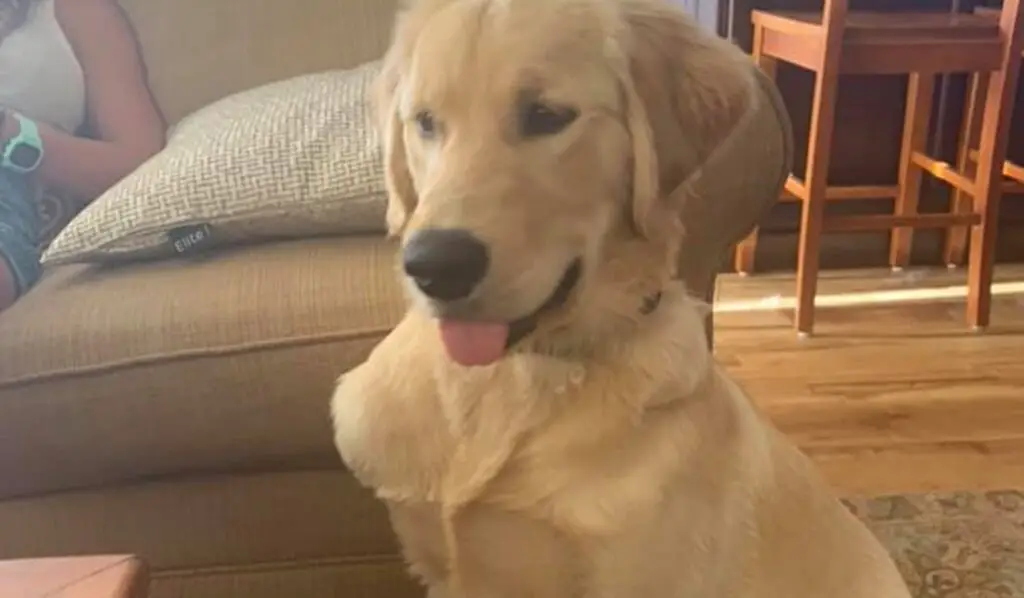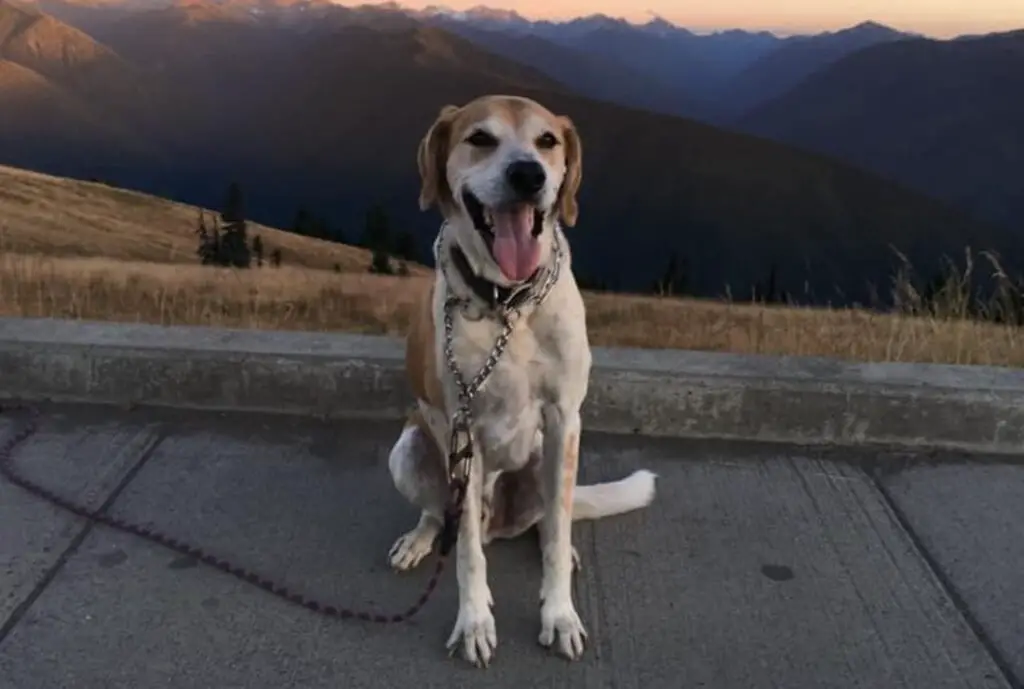Prescapular lymph nodes are found in the shoulder area of dogs and other animals. They help to filter out foreign bodies and bacteria, which can then be destroyed by a healthy immune system.
However, if these lymph nodes become enlarged or inflamed, it could indicate an underlying health issue.
In this blog post, we’ll discuss the causes, symptoms, and treatment of swollen prescapular lymph nodes in dogs.
We’ll also touch on best practices for keeping your pet healthy, so they are less likely to develop this condition.
Key Takeaway
- The purpose of prescapular lymph nodes in dogs is to filter harmful substances from the lymphatic fluid and play a crucial role in the dog’s immune response to fight off infections and diseases.
- Prescapular lymph nodes in dogs are located just in front of the dog’s scapula or shoulder blade.
- The enlargement of prescapular lymph nodes in dogs can be caused by various conditions such as infections, inflammation, immune diseases, or cancers like lymphoma.
Purpose of Prescapular Lymph Nodes In Dogs

Prescapular lymph nodes in dogs, also known as superficial cervical lymph nodes, are located where the neck and shoulder meet.
These nodes are an integral part of a dog’s immune system, working vigilantly to fight off any invaders such as viruses or bacteria.
When these nodes enlarge, a condition known as lymphadenopathy might be indicative of an infection within the body or a disease triggering an immune response.
Swelling in these nodes can sometimes go unnoticed unless the enlargement is significant.
See also: Inguinal Lymph Nodes In Dogs: Causes, Symptoms, and Treatment
Where Are Prescapular Lymph Nodes Located in Dogs

Prescapular lymph nodes, also known as superficial cervical lymph nodes, are located in dogs where the neck and shoulder meet.
They are situated cranial to the shoulder joint in the subcutaneous tissues, often adjacent to or under the skin.
These nodes are found in front of your dog’s scapula or shoulder blade. They are among the peripheral lymph nodes that are commonly located in dogs, along with the cervical nodes under the back of the jaw.
To palpate a dog’s prescapular lymph node, it is easiest when the dog is standing. One would gently palpate over the cranial shoulder joint, progressively deepening the palpation in this area.
See also: Popliteal Lymph Nodes In Dogs – Causes, Symptoms, and Treatment
Causes of Enlarged Prescapular Lymph Nodes In Dogs
- Bacterial or viral infections: These can cause swelling in the lymph nodes as the body fights off the infection.
- Autoimmune diseases: Conditions where the immune system mistakenly attacks the body’s own cells can lead to inflammation in the lymph nodes.
- Metabolic disorders: Certain metabolic disorders can cause lymph node enlargement.
- Parasitic infections: Parasites can trigger an immune response leading to swollen lymph nodes.
- Inflammatory conditions: Conditions like dermatitis can cause swollen prescapular lymph nodes.
- Cancer: Lymphoma or other types of cancer can cause enlargement of the lymph nodes.
- Fungal infections: Certain fungal infections can cause an immune response leading to swollen lymph nodes.
- Allergic reactions: Severe allergic reactions can cause inflammation in the lymph nodes.
- Trauma: Physical injury near the lymph node can cause it to swell as part of the healing process.
See also: Sublumbar Lymph Nodes In Dogs: Causes, Symptoms, and Treatment
Symptoms of Enlarged Prescapular Lymph Nodes In Dogs
- Swelling of the lymph nodes, particularly in the neck and shoulder area
- Lethargy or decreased energy levels
- Fever
- Loss of appetite or anorexia
- Weakness or difficulty moving
- Dehydration
- Increased thirst and urination
- Noticeable weight loss
- Difficulty breathing or coughing (in severe cases)
- Changes in behavior or mood.
Diagnosis of Enlarged Prescapular Lymph Nodes In Dogs
Diagnosis of prescapular lymph nodes in dogs includes:
Step 1: Initial Consultation and Physical Examination
The first step in diagnosing issues with prescapular lymph nodes in dogs is a thorough consultation and physical examination by a veterinarian.
The vet will discuss any symptoms your dog has been experiencing and will physically examine your dog, paying close attention to the areas where lymph nodes are located. They will palpate (feel) these areas to check for any swelling or abnormalities.
Step 2: Fine-Needle Aspiration
If the veterinarian finds that the lymph nodes are enlarged, they may perform a fine-needle aspiration (FNA). This procedure involves inserting a small needle into the lymph node to collect a sample of cells. This is typically a quick process and can often be done without anesthetic.
Step 3: Cytology
The collected sample is then examined under a microscope, a process known as cytology. This allows the veterinarian to identify the types of cells present in the lymph node, which can help diagnose various conditions such as infection, inflammation, or cancer.
Step 4: Blood Tests
The vet may also recommend blood tests. These can provide information about your dog’s overall health and can help identify infections, immune-mediated diseases, or other potential causes of lymph node enlargement.
Step 5: Additional Diagnostic Tests
Depending on the results of the initial tests, additional diagnostic procedures may be necessary. This can include imaging tests like X-rays or ultrasounds to examine the internal structure of the lymph nodes and surrounding areas, or more invasive procedures like a biopsy, where a larger sample of tissue is taken for examination.
Step 6: Review of Diagnostic Results
Once all tests have been completed, the veterinarian will review the results to make a diagnosis. They will then discuss these findings with you, along with potential treatment options and prognosis.
See also: What Do Dog Lymph Nodes Feel Like?
Treatment of Enlarged Prescapular Lymph Nodes In Dogs
The treatment for prescapular lymph nodes in dogs will largely depend on the underlying cause of the swelling.
Antibiotics or Antifungal Treatment
If the lymph nodes are enlarged due to a bacterial or fungal infection, the infection will need to be treated with antibiotics or antifungal medication.
Chemotherapy or Radiation Therapy
In cases where the swollen lymph nodes are caused by cancer, more aggressive treatment options such as chemotherapy or radiation therapy may be recommended.
Prednisone Treatment
Prednisone, a type of corticosteroid, is often used to treat lymphoma in dogs. While it does not cure the disease, it can temporarily reduce clinical signs and buy the pet some time. Approximately 50% to 70% of dogs will respond to Prednisone alone to some extent and see at least a partial reduction in lymph node size.
Surgical Removal
In some cases, the veterinarian may recommend the surgical removal of the lymph nodes. Techniques for removal include sharp or blunt dissection or careful electrocautery, aiming to stay immediately outside the lymph node capsule.
See also: Can Dogs Live Without Lymph Nodes?
FAQs
Q: Why do lymph nodes in dogs become swollen?
A: Swollen lymph nodes in dogs, also known as lymphadenopathy, can be caused by various factors. They may enlarge in response to an infection, inflammation, or the presence of cancer cells in the body.
Q: How can I diagnose swollen lymph nodes in my dog?
A: To diagnose swollen lymph nodes in dogs, a veterinarian will typically perform a physical examination of the dog and palpate the affected area. In some cases, further tests such as a fine-needle aspirate or a biopsy may be recommended to determine the underlying cause of the enlargement.
Q: What are the possible causes of swollen lymph nodes in dogs?
A: Swollen lymph nodes in dogs can have various causes, including infections (bacterial, viral, or fungal), autoimmune diseases, reactions to medications, allergies, and cancer (such as lymphoma). It is important to consult with a veterinarian for an accurate diagnosis.
Q: Are prescapular lymph nodes commonly affected in dogs?
A: Yes, prescapular lymph nodes can be affected in dogs. They are one of the peripheral lymph nodes that can become enlarged when there is an infection or other underlying issues.
Q: What is the treatment for swollen lymph nodes in dogs?
A: The treatment for swollen lymph nodes in dogs depends on the underlying cause. In cases of infection, treatment may involve antibiotics or antifungal medications. If cancer is the cause, treatment options may include surgery, chemotherapy, or radiation therapy, depending on the type and stage of the cancer.
Q: Can swollen lymph nodes in dogs be a sign of cancer?
A: Yes, swollen lymph nodes in dogs can be a sign of cancer, particularly lymphoma. Lymphoma is a type of cancer that affects the lymphatic system and can cause the lymph nodes to become enlarged.
Q: What is the prognosis for dogs with swollen lymph nodes?
A: The prognosis for dogs with swollen lymph nodes depends on the underlying cause. In cases where the cause is an infection or inflammation, the prognosis is generally good with appropriate treatment. However, if the cause is cancer, the prognosis can vary depending on the type and stage of the cancer.
Q: Can I prevent my dog from developing swollen lymph nodes?
A: While it may not be possible to prevent all cases of swollen lymph nodes in dogs, there are some preventative measures you can take. Keeping your dog up to date on vaccinations and regularly checking for any signs of infection or illness can help in early detection and prompt treatment.
Q: When should I be concerned about swollen lymph nodes in my dog?
A: It is recommended to consult with a veterinarian if you notice swollen lymph nodes in your dog that are larger than normal, firm, or not resolving within a couple of weeks. Additionally, if your dog has other symptoms such as loss of appetite, weight loss, or lethargy, it is important to seek veterinary attention.
In Conclusion
In conclusion, lymph nodes in the dog’s prescapular region can be caused by a variety of issues.
Infections, tumors, allergies, and other skin conditions can all cause the lymph nodes to swell.
Symptoms of swollen prescapular lymph nodes will vary depending on the underlying cause but can include fever, lethargy, and pain.





Leave a Reply